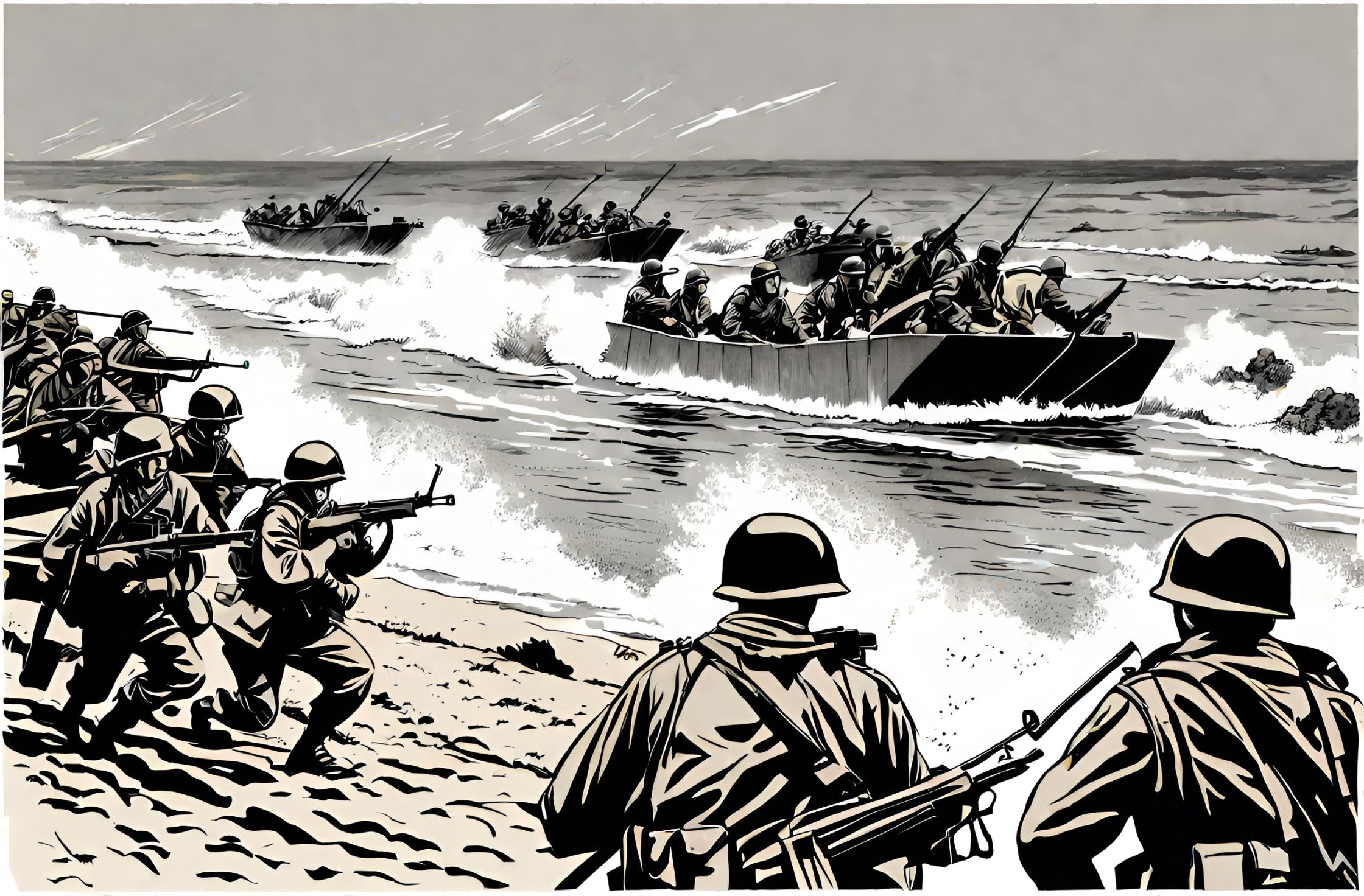Flashback to June 6
World History

On June 4, 1940, one of the most remarkable events of World War II took place – the Dunkirk evacuation. Over the course of eight days, British forces successfully evacuated around 300,000 troops from the beaches and harbor of Dunkirk, France. This operation, code-named “Operation Dynamo,” was a pivotal moment in the early stages of the war and had a significant impact on the outcome.
The evacuation of Dunkirk was necessitated by the German invasion of France, which had pushed the British Expeditionary Force (BEF) and other Allied troops to the northern part of the country. Surrounded by German forces, these troops found themselves trapped and facing imminent capture or even annihilation.
In this dire situation, British military leadership, led by Admiral Bertram Ramsay, devised a plan to rescue the stranded troops. A call was sent out for civilian boats to aid in the evacuation, and a fleet of around 700 private vessels, ranging from fishing boats to pleasure yachts, answered the call. These small boats, piloted by civilian volunteers, would play a crucial role in the rescue mission.
The evacuation began on May 26, 1940, with the operation initially expected to rescue around 45,000 men. However, as the situation on the ground became increasingly desperate, the scale of the operation grew exponentially. Under constant German bombardment and aerial attacks, the troops patiently waited their turn to be evacuated.
Over the course of the operation, British and Allied forces faced countless challenges. The vast number of troops, the ever-present threat of German attacks, and the limited resources available made the operation extremely difficult. Yet, against all odds, they managed to evacuate a staggering number of soldiers.
By June 4, 1940, eight days after the operation began, the evacuation was finally complete. Approximately 338,000 soldiers had been evacuated, with the majority of them being British. This feat was nothing short of miraculous and had a profound impact on the course of the war.
The successful evacuation of Dunkirk was a pivotal moment in World War II. It bought the British and their allies valuable time to regroup, rearm, and strategize their next moves. Winston Churchill, the British Prime Minister at the time, hailed the operation as a “miracle of deliverance.”
The events at Dunkirk also had a significant impact on the morale of the British people. The successful evacuation demonstrated the resilience, determination, and courage of the British troops, as well as the support and solidarity of the civilian population who rallied to their aid. It created a sense of unity and defiance in the face of adversity, which would prove crucial in the years to come.
From a strategic standpoint, the evacuation of Dunkirk enabled the British to preserve a significant portion of their army, which would later play a vital role in the Allied effort to liberate Europe. The troops evacuated from Dunkirk went on to fight in subsequent battles, and their experience and expertise became invaluable assets in the ongoing war effort.
the Dunkirk evacuation was a momentous event in World War II. Against all odds, British and Allied forces managed to rescue hundreds of thousands of soldiers from the clutches of the advancing German army. This successful operation not only saved lives but also gave a much-needed boost to the morale of the British people and paved the way for future Allied victories. The Dunkirk evacuation will forever be remembered as a symbol of bravery, sacrifice, and the indomitable spirit of those who fought against tyranny.
We strive for accuracy. If you see something that doesn't look right, click here to contact us!
Sponsored Content

D-Day
Relive the courage and…

Dr Carl Gustav Jung,…
Dr. Carl Gustav Jung,…

Paris Metro Line 5…
On 6/6/1906, the Paris…

The Indian Army attacks…
On 6/6/1984, the Indian…

Cunard Line’s RMS Lusitania…
On June 6, 1906,…

A near-Earth asteroid estimated…
On 6/6/2002, a near-Earth…

